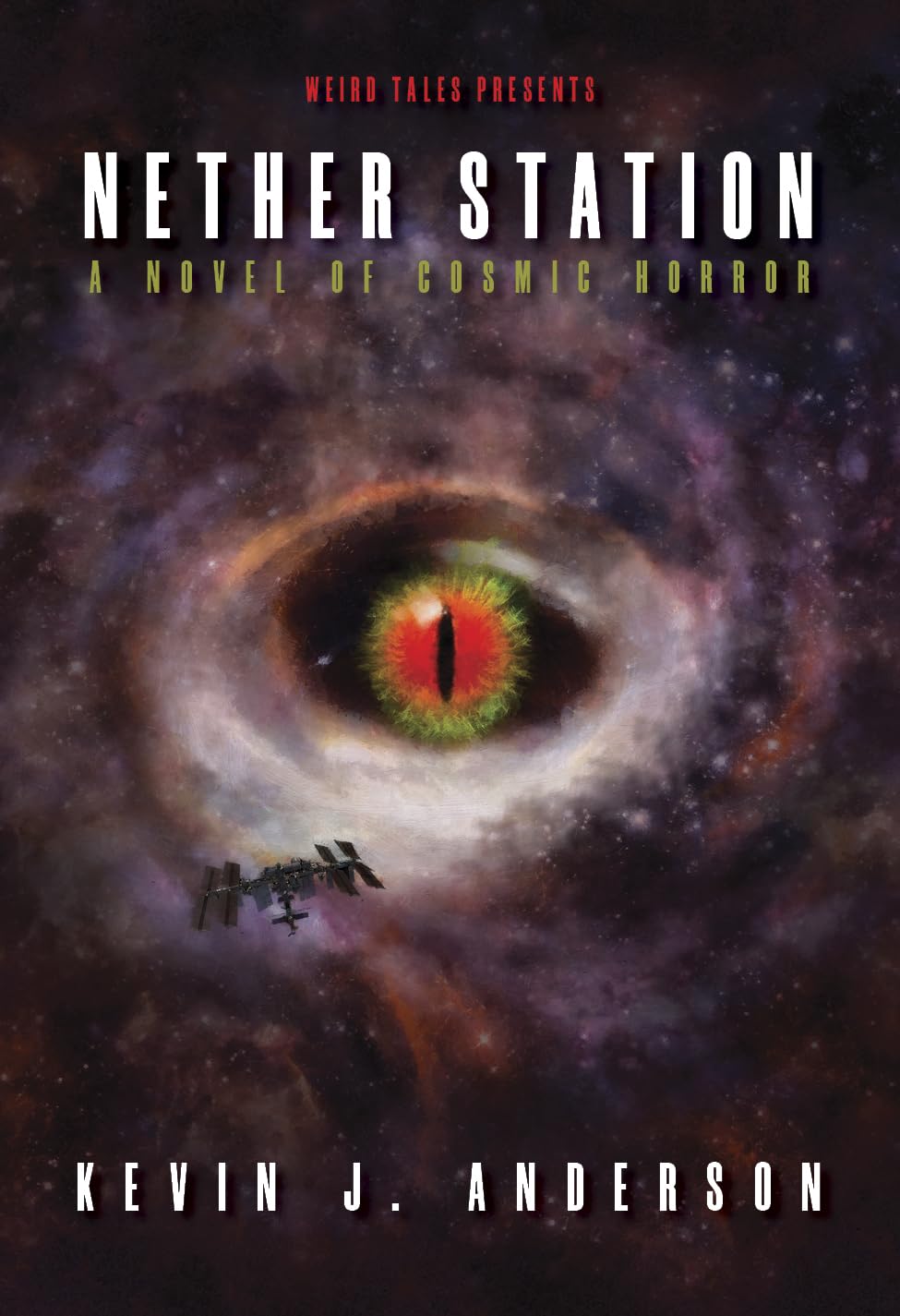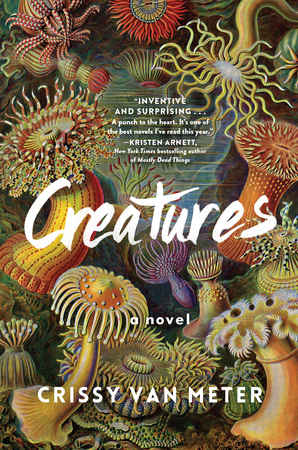Nether Station: A Novel of Cosmic Horror
- By Kevin J. Anderson
- Blackstone Publishing
- 316 pp.
- Reviewed by Mariko Hewer
- November 8, 2024
An uneven, confusing ode to Lovecraftian terror.

It’s a sci-fi tale as old as time: An intrepid band of explorers probes a newly discovered wormhole at the edges of our solar system, only to learn they’re not the first to lay claim to it. Unfortunately, Kevin J. Anderson’s Nether Station features a cast of characters with such inexplicable motivations and behaviors that it’s sometimes difficult to focus on the larger picture of what they’re up against.
The mission begins, as many such ill-fated journeys do, with a tragedy: Zach Tendari, mentor of fellow astrophysicist Cammie Skoura, dies while being brought out of cryogenic sleep as the spaceship Lethe approaches the wormhole, called Nether. In the first few chapters, Anderson gives us hint after hint that Tendari is inappropriately interested in his student — she remembers falling into her cryopod sleep as “Dr. Tendari was above, watching her, and his smile seemed more intense than usual, more possessive” — yet Cammie is somehow unaware of this fact.
Her inability to see Tendari’s advances for what they are serves as our introduction to Cammie’s neurodivergence, which at times feels far-fetched. Unprepared to grieve the man, Cammie reflects on how “She’d had a sheltered life, not even a pet growing up. Her parents and brother had never been close, and their loss in the house fire still seemed so distant, so unreal.” While it’s of course possible Cammie hasn’t fully processed the death of her entire family, it’s hard to believe that — neurodivergent or not — she feels nothing at all about the event.
Once the team reaches the wormhole, things continue to spiral out of control. Anderson deploys considerable descriptive prowess in conjuring one of the aliens that catapults into the spaceship’s window out of nowhere:
“Its external shell had cracked in the deep cold of space, and fluids had leaked out and flash frozen in the vacuum. One of the black insectile eyes had jagged crazed lines, as if the brain inside the head shell had burst. The mouth was a collection of mandibles.”
The crew’s reaction to these beings is, to say the least, difficult to understand. “There’s no such thing as aliens,” Cammie says confidently while literally looking right at one. And Benedict Noor, the expedition’s leader, reflects, “In all our mission meetings, we didn’t plan for aliens.” For a man who seeks the unknown and purports to be ready for anything, this is a startling admission.
Later, while exploring a comet as a water source, crew members find a massive frozen structure they dub an alien temple. “The temple shouldn’t be here in the first place, and I’m still having trouble grasping the very idea of ancient aliens out here at Nether,” opines one. “Or anywhere,” retorts another. Why would they imagine they’re the first visitors to Nether, and why does the concept of “should” enter into their calculations at all?
Back on the station, the rats and monkey sent through the wormhole as probes have returned drastically altered, and something is awry in the Lethe’s onboard greenhouse:
“Normally, the moist smell of growing plants was refreshing, but now the air was rank with a sour, rotten stench. The plant leaves were stained and bruised, as if smeared with drain oil and feces. The bean plants were brown masses of leprous growths. Swollen carrots had popped out of the soil, tumescent and oozing.”
It’s when the author flexes such Lovecraftian muscle that his prose is strongest, a real joy to read. In a clever nod to master H.P., after the lab rats escape their cages, the ship’s doctor panics. “A sick cold settled into his gut,” writes Anderson. “The rats were in the walls.”
Ultimately, Nether Station is hobbled by characters whose motivations are as murky as their actions. It’s only when Anderson dips his toe into eldritch descriptions that the writing really shines — or shivers.
Mariko Hewer is a freelance editor and writer as well as a nursery-school teacher. She is passionate about good books, good food, and good company. Find her occasional insights of varying quality on Twitter at @hapahaiku.

